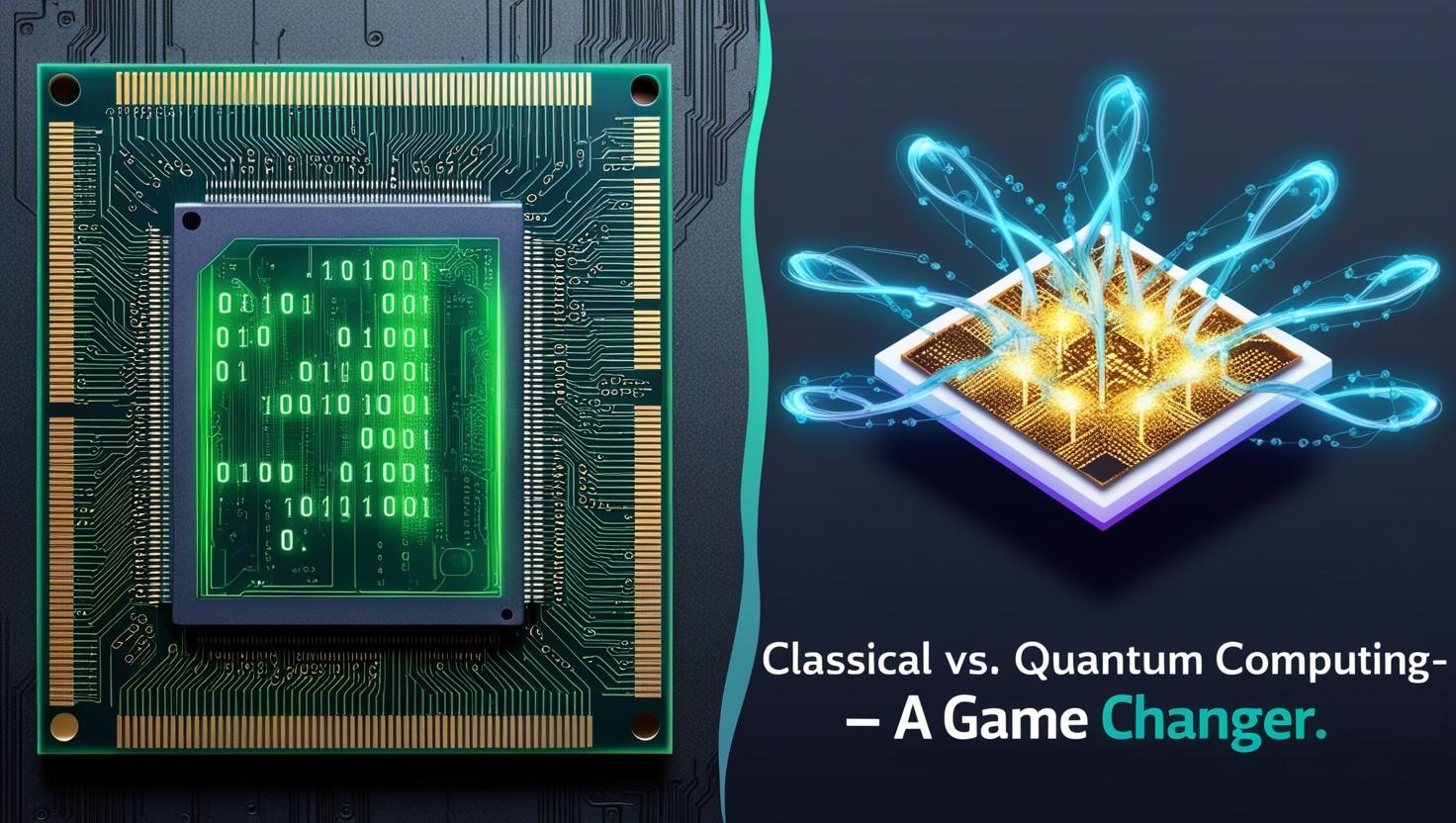
Best No-Code App Builders for Small Businesses in 2026: Create Apps Without Coding
webwritetech1@gmail.com

Quantum computing is no longer a concept of science fiction. It is now a reality that is shaping the future of technology. As industries move towards faster, more efficient computing solutions, quantum computing is emerging as a game-changer. But what exactly is quantum computing, and how will it impact our world? In this blog, we will explore the rise of quantum computing, its applications, potential challenges, and what the future holds.
Quantum computing is an advanced form of computation that leverages the principles of quantum mechanics to process information exponentially faster than traditional computers. Unlike classical computers that use bits (0s and 1s), quantum computers use quantum bits or qubits, which can exist in multiple states simultaneously.

Qubits can be in multiple states at the same time, thanks to a phenomenon called superposition. This enables quantum computers to process vast amounts of data simultaneously.
Entanglement is a quantum phenomenon where two qubits become interconnected, allowing them to share information instantaneously, regardless of the distance between them.
Quantum gates manipulate qubits to perform complex calculations, unlike classical logic gates that process binary data.
Quantum computing has gained significant momentum in recent years, with major tech giants investing billions into research and development. Companies like IBM, Google, Microsoft, and startups such as Rigetti Computing are pushing the boundaries of what quantum computers can achieve.

Quantum computing is set to revolutionize multiple industries by solving complex problems that traditional computers cannot handle efficiently.
Quantum computers can model molecular interactions at an unprecedented scale, accelerating drug discovery and the development of new treatments for diseases.
Quantum computing poses both opportunities and threats to cybersecurity. It can break traditional encryption methods but also develop next-generation quantum encryption techniques.
Banks and financial institutions can leverage quantum algorithms for risk assessment, fraud detection, and optimizing investment portfolios.
Quantum computing enhances AI by significantly improving processing speeds and the efficiency of machine learning algorithms.
Quantum computers can simulate climate patterns with higher accuracy, helping scientists predict and mitigate climate change.
Despite its potential, quantum computing faces several challenges that need to be addressed before it becomes mainstream.
Quantum computers require extremely low temperatures and complex infrastructure, making them difficult to scale.
Qubits are highly sensitive to environmental factors, leading to errors in computation. Scientists are working on error correction techniques to improve reliability.
Quantum computing research and development require massive investments, limiting access to only a few tech giants and research institutions.

As technology advances, quantum computing is expected to become more accessible and impactful.
Companies like IBM and Amazon are offering quantum computing as a cloud service, making it accessible to businesses and researchers worldwide.
The integration of quantum and classical computers will create hybrid systems that maximize computational efficiency.
Within the next decade, industries will likely adopt quantum computing for real-world applications, transforming areas like logistics, materials science, and artificial intelligence.
Quantum computing represents the future of computation, offering immense potential for industries ranging from healthcare to cybersecurity. While there are challenges to overcome, ongoing research and investment are bringing us closer to a quantum-powered world. Businesses and tech enthusiasts should keep an eye on this evolving technology, as it will reshape the way we solve complex problems.
Web Write Tech is dedicated to keeping you updated on the latest advancements in technology. Stay tuned for more insights on emerging tech trends and innovations!
[…] smart email responses to real-time analytics, AI frees up valuable time so entrepreneurs can focus on […]